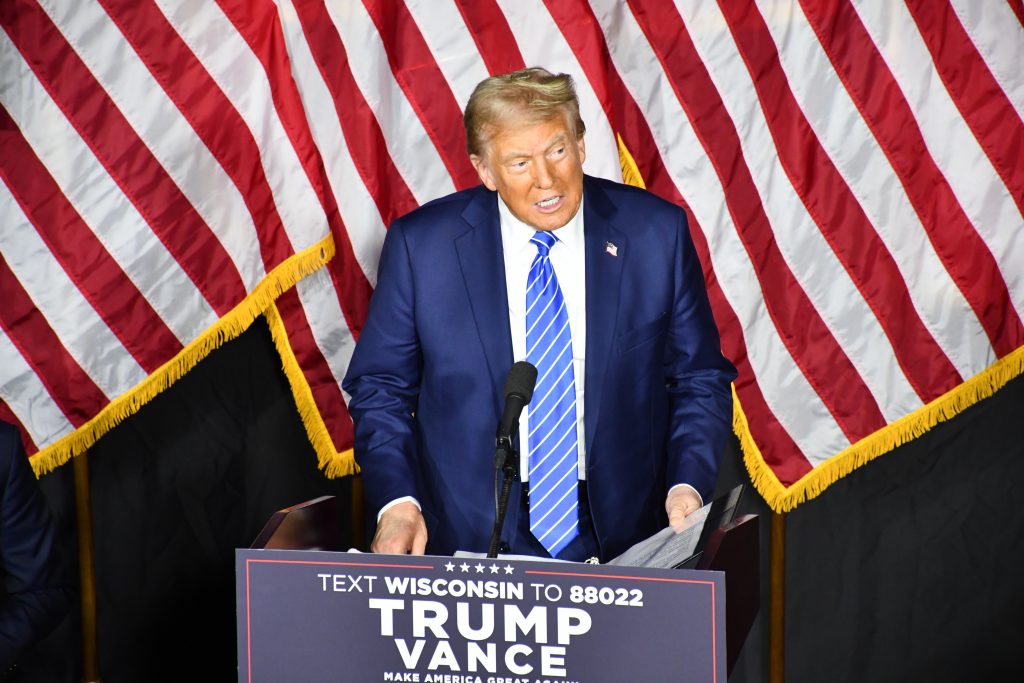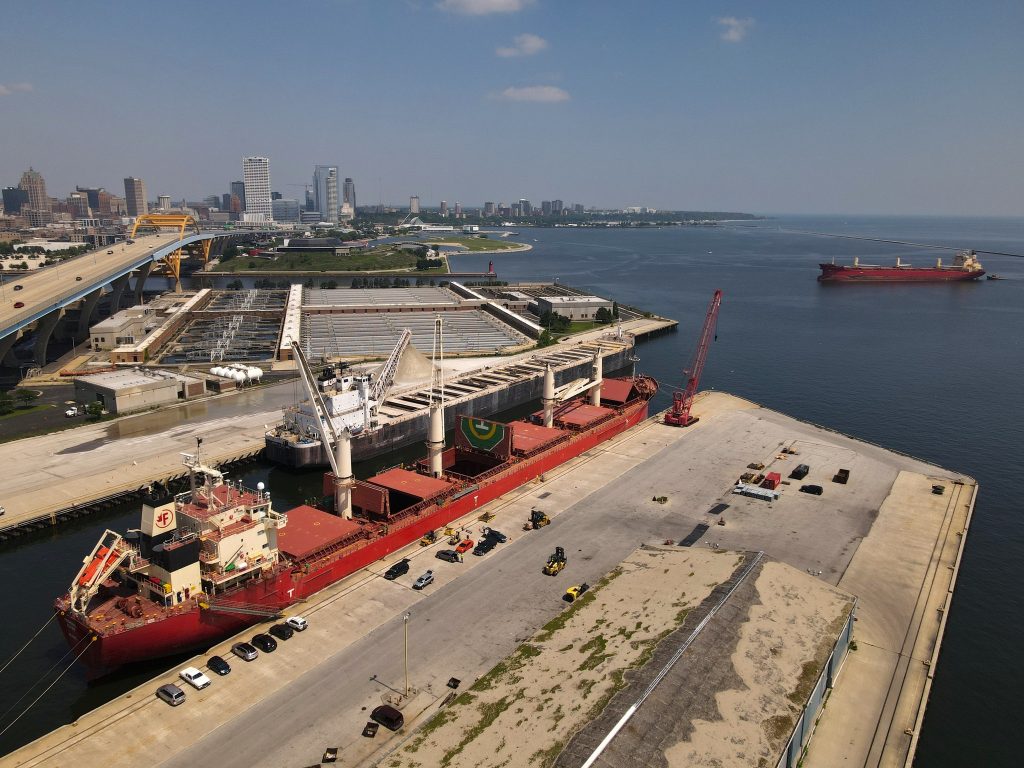Trump Tariffs Hurting Wisconsin Foreign Trade, Business Relationships
Tonnage through the Port of Milwaukee down 30% through early 2025.
President Donald Trump’s tariffs are making it harder for Wisconsin businesses to predict the price of raw materials and are straining decades-long relationships with trade partners — and more tariffs are expected to take effect next month.
Many businesses have been hesitant to speak out. But Dale Kooyenga, president of the Metropolitan Milwaukee Association of Commerce, said on Friday that the “vast majority” of businesses in the Milwaukee area have expressed concern about tariffs. He said the companies that “think this is good” represent a minority of businesses.
“You have to be a psychiatrist that’s intimately familiar with Trump’s head to know exactly how you are going to forecast the price of copper or aluminum,” he said.
Earlier this month, the Trump administration announced plans to implement a 50 percent tariff on copper imports. In June, the White House also said it was raising tariffs on steel and aluminum imports from 25 percent to 50 percent. This summer, the administration announced the framework of a trade deal with China that keeps tariffs on that country high at 30 percent.
And new tariffs on dozens of countries could be in place by Aug. 1, including 35 percent tariffs on Canadian goods. Trump administration officials have said negotiations with countries could extend beyond that deadline.
Tariffs are a tax paid by businesses importing goods or materials, with the costs of those tariffs typically passed on to consumers in the form of higher prices. Trump and members of his administration have characterized the administration’s import taxes as a way of encouraging the creation of new U.S. factories and other industries.
In a year marked by a shifting international trade environment, tonnage through the Port of Milwaukee since the start of 2025 was down by about 30 percent as of May compared to the same period last year, according to Jackie Carter, port director for the Port of Milwaukee.
“A lot of that has to do with a slower start to the year because of all the uncertainty (and) the talk around tariffs,” she said at a Wisconsin Policy Forum webinar on Friday.
Salt is one of the main commodities that comes into the port from Canada, Wisconsin’s largest trading partner, Carter said. Salt tonnage through the port was down by 59 percent as of May, she said.
Kooyenga said there are countries using unfair trade practices that must be addressed. But he also said the “tone matters” in how the U.S. deals with other nations.
“When you tell a sovereign nation like Denmark that we’re going to take Greenland, that’s personal, and that’s going to hurt business,” he said, referencing comments Trump made early in his second term. “When you tell Canada to be the 51st state, that’s personal, and that’s going to hurt business.”
Aaron Annable, consul for the Consulate General of Canada in Chicago, said Wisconsin has a more than $2 billion trade surplus with Canada due to the state’s “very powerful manufacturing sector.” He said the relationship between Wisconsin and Canada has been built over decades, but tariffs risk derailing that effort.
Annable said companies on both sides of the northern U.S. border may choose to discontinue their relationships because it might not make financial sense to continue them.
“That is what is at stake,” he said. “We know that it’s primarily importers and consumers that will bear the cost of these tariffs.”
He also said a 35 percent U.S. tariff on Canadian goods would be “dramatic.” He said Canada views the tariffs as “unjustified and unwarranted.”
Kooyenga also said Wisconsinites concerned about tariffs should contact their congressional representatives because tariffs are a tax and the United States is a nation founded on the principle of “no taxation without representation.”
“The Constitution is very clear that tariff authority, because that relates to taxes, resides within the U.S. Congress,” he said. “The U.S. Congress has surpassed that constitutional responsibility and has almost completely placed it in the lap of the executive branch — that’s simply not the way the Constitution works.”
Trump tariffs are straining Wisconsin business relationships, price predictability was originally published by Wisconsin Public Radio.
If you think stories like this are important, become a member of Urban Milwaukee and help support real, independent journalism. Plus you get some cool added benefits.























